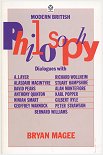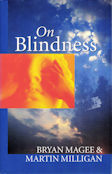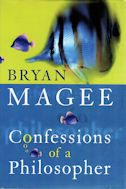‘Until I was five I shared a bed with my sister,
three and a half years older than me.
After our parents had switched out the light we would chatter away
in the darkness until we fell asleep.
But I could never afterwards remember falling asleep.
It was always the same: one moment I was talking to my sister in the dark,
and the next I was waking up in a sunlit room having been asleep all night.
Yet every night there must have come a time when I stopped talking
and settled down to sleep.
It was incomprehensible to me that I did not experience that,
and never remembered it.’
In this inspirational book Bryan Magee tells the story of his discovery of philosophy,
and in doing so introduces the subject to his reader.
The fundamental problems of philosophy are seen first of all
as problems about the nature of reality, encountered in the course of living,
not as difficulties in understanding the writings of philosophers.
Experiences of everyday life provoke discussion of philosophers
and explain why certain philosophical questions persistently exercise our minds.
The book follows the progression of Magee’s life,
so that problems and philosophers are discussed
in the order in which he encountered them, rather than in chronological order.
By the end of the book Magee has acquainted the reader with all
the outstanding figures in western philosophy
from the pre-Socratics to the twentieth century,
including two of the best of recent philosophers,
Bertrand Russell and Karl Popper, whom the author knew personally.
In this beautifully written book Magee lucidly and with great fluency
untangles an obscure and difficult subject,
making it seem part of everyday life.
Intensely personal and brimming with infectious enthusiasm,
Confessions of a Philosopher is a wonderful introduction to philosophy
by one of the most elegant and accessible writers on the subject.



